Interview: NBA star ANDRE IGUODALA talks sacrifice, freedom, and what needs to change
In today's media landscape, a book review is often a slap on the back. A handshake among colleagues that says, “well done.” But we have never been afraid to offer critique when critique is due. In our print section Berlin Reviews, we've always tried to take the propositions of a book seriously and push them to their extremes.
“If you have respect for it, a reverence for it – if you love it and get joy from it – that’s when you start to have success.”
Andre Iguodala
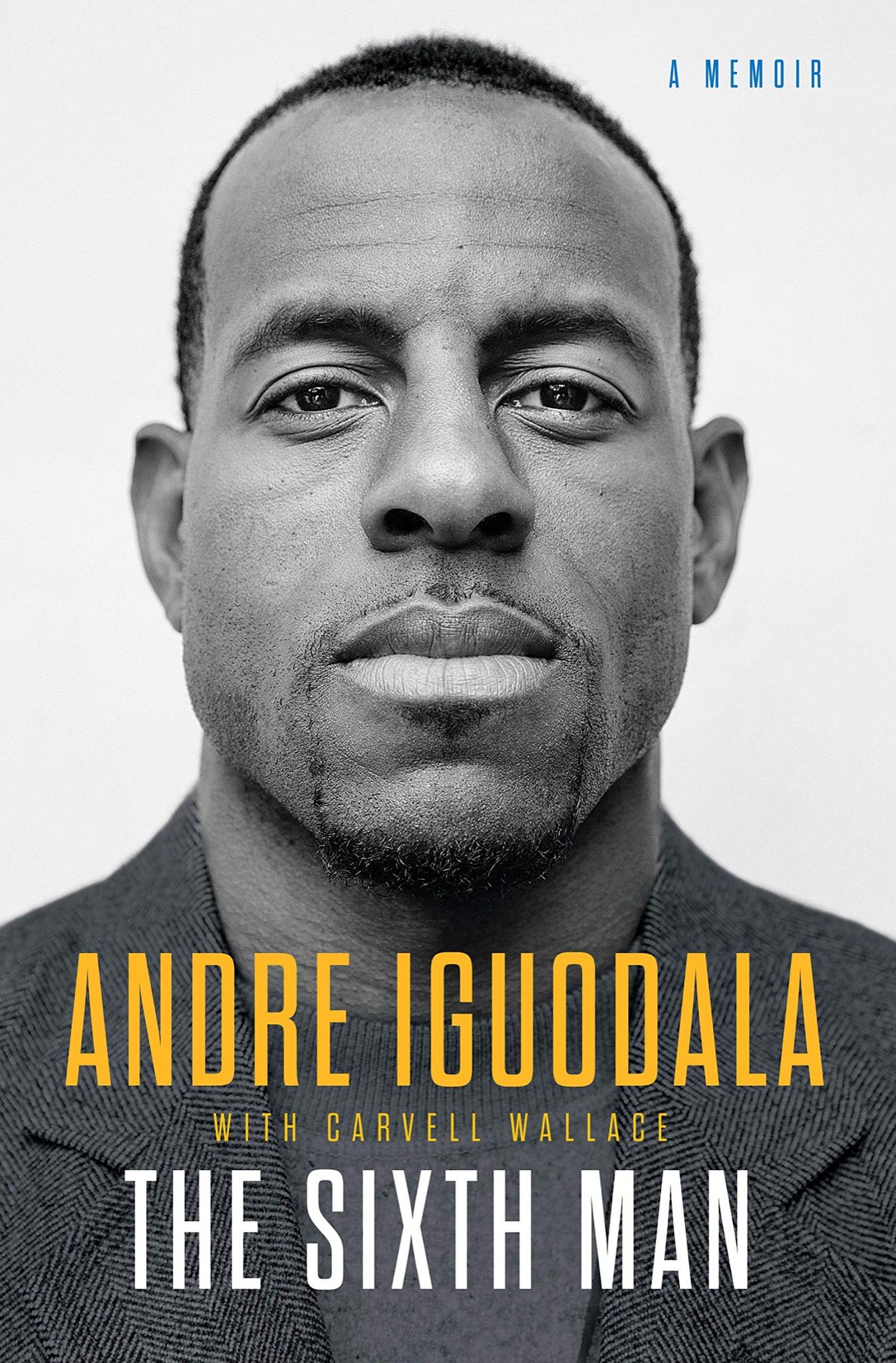
Given the opportunity, you, a basketball fan, would like to ask an NBA champion like Andre Iguodala a number of questions. You would like to hear from such a great basketball mind how he is able to anticipate the movements of players he is defending and how he can read the fast break with such proficiency. Not immune to gossip, you would like to know more about the end of Iguodala’s tenure with the Golden State Warriors, where his coach, Steve Kerr, had often referred to him as “the only adult in the room.” You would also like to know about the future of the Players Technology Summit that he initiated with Stephen Curry in Silicon Valley – especially now that he will no longer live in the Bay Area – and about his continued dedication to the financial literacy of Black athletes, two things that are very grown-up in their impulse to help others. You would also be dying to ask whether his investment portfolio is as innovative and extensive as he implies in this quote from a recent interview: “If we can find ways to stop abusing the earth with pollution and overeating and obesity and cancer, and if you have to take a chunk of my wealth, I’m all for it.” And, perhaps on a lighter note, you would like to know what it is about the affinity between golf and basketball that makes so many professional basketball players love golf as much as Iguodala does.
Yet none of these questions would be relevant to Iguodala’s memoir The Sixth Man: A Memoir (June 2019), and it has been conveyed to you that he would like to stick to the book and not discuss hoops, having being traded from the Golden State Warriors to the Memphis Grizzlies a few weeks ago. As curious as you are about this move, too, you want to respect Iguodala’s wishes above all. Not just to avoid being lumped together with the creators of the click-bait articles that Iguodala rallies against in his memoir, but also because the book he co-wrote with writer and podcaster Carvell Wallace is rich in its own right.
The Sixth Man is a very atypical sports book. Almost half the memoir deals with events before Iguodala’s first season in the NBA, and the rest of it focuses more on the organizations, the coaches, the players, the press, and the people around the swingman than on his own achievements, of which there are many. A three-time NBA Champion, a Finals MVP, a Gold Medalist, and an All-Star, Iguodala has had a decorated career, but you would never know it from reading the book. Iguodala does not dwell on his achievements in The Sixth Man. He presents himself as someone on a journey. Iguodala and Wallace explained their approach and their focus over a conference call earlier this month.
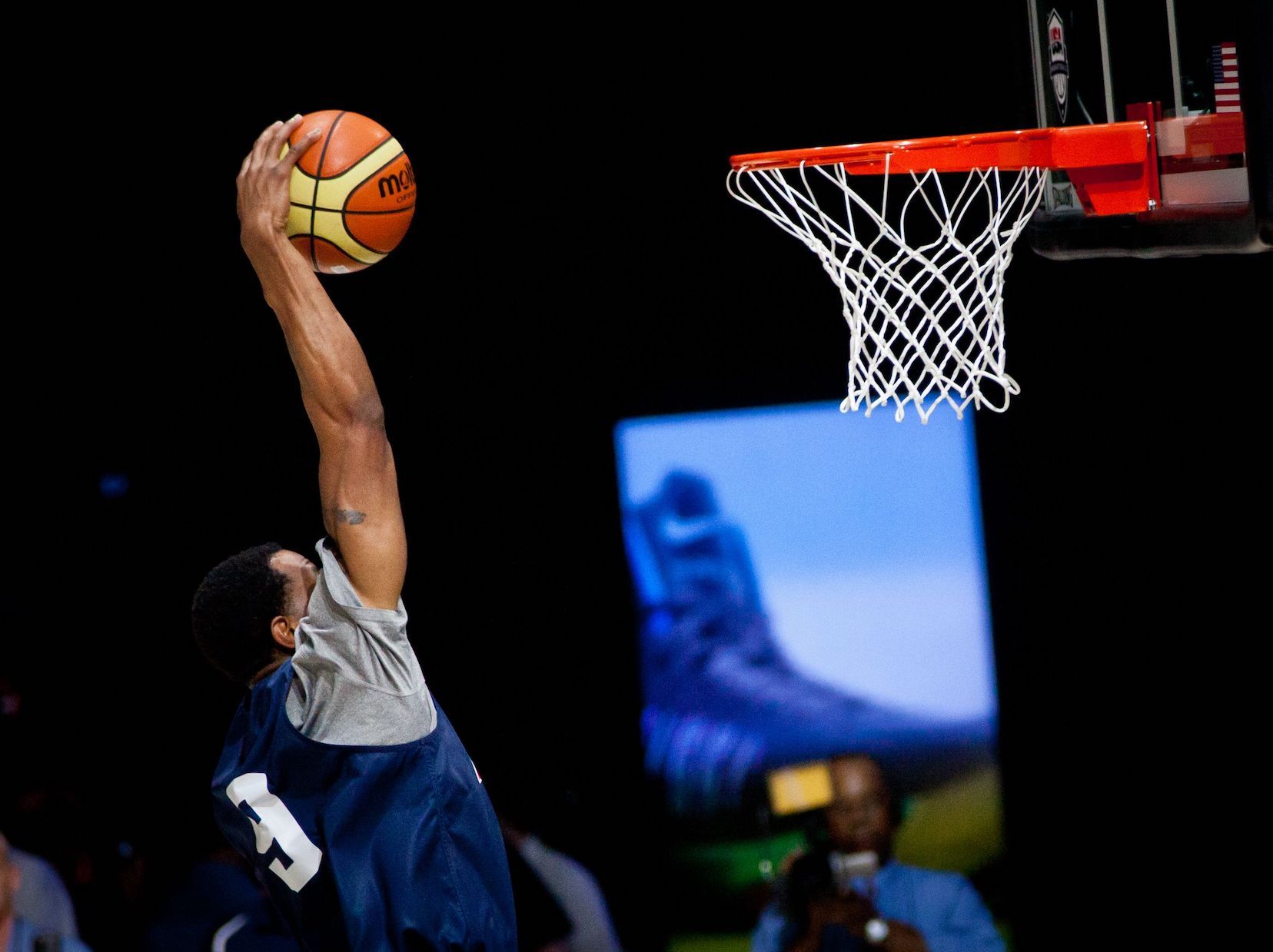
You liken basketball to storytelling in The Sixth Man. How do the two of you, coming from your different crafts, understand this relationship?
Carvell Wallace: Storytelling was a natural metaphor for how Andre uses observation to navigate through each game. He articulated watching how other players walk, how they look and shoot, how they respond to calls. His ability to be observant as the game unfolds has been integral to his success and I can relate to that as a writer. Half of writing is observing and reporting – how people talk, when their facial expression changes, what they say and don’t say – and the other half is finding ways to put that into words. For Andre, it was similar. He had to observe but also know how to make things happen. When to pass, when to shoot, how to get a person open. We are basically doing the same thing. Where it’s game play for him, it’s writing for me.
Andre Iguodala: Carvell was always asking the right questions, questions that allowed me to disclose moments in my life that changed my path or moments that kept me on the straight and narrow. That’s how we got our rhythm. And we got in a really good rhythm. We were able to find our flow. I’d be telling a story and he would be able to put that into words but still keep it as my voice.
Your voice is very present in the book, it feels personal, and you often directly address the reader. It’s like a conversation.
AI: That was exactly the point of it all. The book isn’t a typical tell-all biography that says, “here’s my story.” People have told me that they could feel what I was saying and could relate to it. They were able to put themselves in my position and could feel themselves within the things that have occurred to me throughout my career. They felt addressed.
CW: It took a while for us to get into the flow that Andre mentioned. We started with the standard questions about family and school but I realized that if I said, “that’s interesting, tell me more,” he would give me a lot of other information about all the people in the games or about the situation. I realized that the experience of him giving me this story was the experience that readers would want. I loved it. I felt like it was helping me as a person, and I felt like it would help other people too.
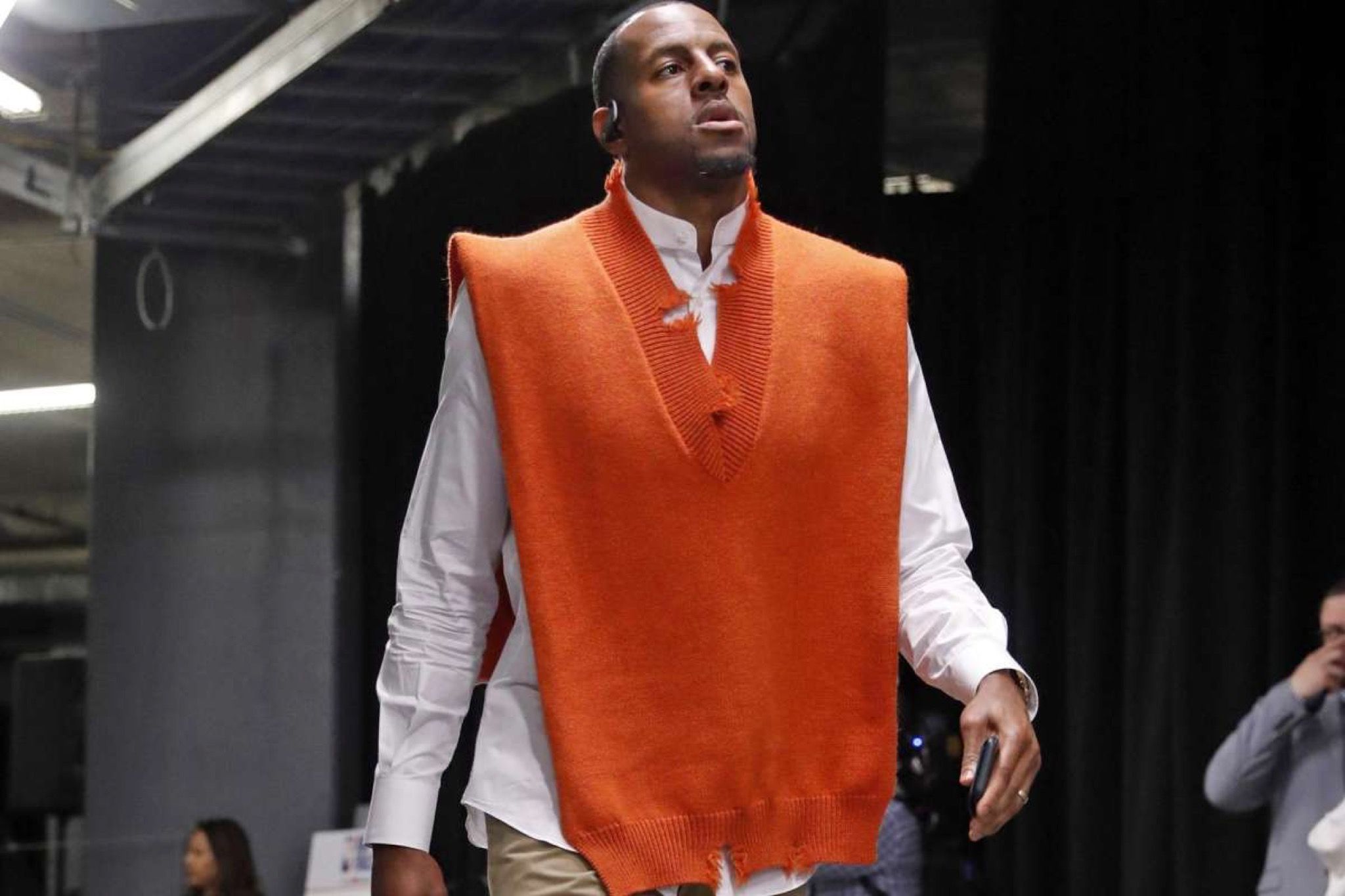
There is, in fact, an educational aspect to the book. It’s almost a how-to manual, teaching young people how to navigate through the complicated world of professional basketball. But these lessons about racism, people taking advantage of you, and the press spinning stories about your character have wider implications.
AI: That was a key point. The book reflects on a number of situations, both good and bad. And for those that were bad, the next generation will be able to adjust and put things in the right perspective on how to deal with things from reading about my story. I’ve had a lot of questions from all kinds of people (fans, teammates, the front office, ownership) from all over the scope (AAU, USA Basketball, the league) about how to handle certain situations, whether it be finances or family or whatever. No one knows where to start and a lot of that is systematic. Nevertheless, we haven’t made it a point to tackle the issues we need to change – and that was part of the book as well. We are getting better as athletes but we still have a ways to go in terms of our influence, of how our habits reflect on the people we influence.
Was there any fear of backlash? Some of the portrayals of the inner workings of organizations can be quite damning.
AI: I don’t think you should be afraid. I work really hard and I put a lot of energy, good energy, into what I do. I’m doing these things for myself but I’m also doing them so that others can benefit from the work I’m putting in. And even if some of the things I say can get me in trouble sometimes, I feel like it’s for the greater good. It’s just the right thing to do. I’m putting out good energy. It’s good karma. That’s how I move.
CW: Andre said from the beginning that one of the main reasons he wanted to do this memoir was to bring humanity to people’s understanding of what athletes do, which isn’t a given. Here’s an example. We tried to talk in places where there weren’t a lot of interruptions but every once in a while someone would come up and ask for an autograph or ask him to take a picture with their kid or if he could come volunteer at the YMCA. Andre was incredibly gracious throughout, but as an observer it dawned on me that people don’t really think of you as a human being if you have that level of celebrity. After all, you wouldn’t think it was OK to just go up to a random person and interrupt them during their meal to ask for something. But people don’t view athletes as strangers; they view them as something they own a piece of. Andre was really good at emphasizing the importance of there being a human being in these stories who was also struggling at times. Whether you see someone as human was very important during our discussions.
While reading The Sixth Man, I was reminded of another wonderful memoir, Bill Russell’s Second Wind: Memoirs of an Opinionated Man. Like your book, Russell and his co-writer Taylor Branch give an inside portrait of professional basketball while also exploring topics such as freedom, race, religion, and American culture. Was it an influence?
CW: It wasn’t a direct influence, but I think Bill Russell and Andre landed in the same place because they have the same overall intentions. Which, again, is to find a way to humanize Black athletes. Also, both books are memoirs – not biographies. They’re not recounting simple series of events like, “we played this team then that team and I scored thirty points.” Biographies like that have no memory, and memory was something we wanted to explore. One influence for that was Mary Karr’s The Art of Memoir, where she makes a clear case for distinguishing between memoir and biography. To be honest, we had fallen into writing a biography at first. But after 100 pages or so, we ran it back and got into memory and feeling. What makes a compelling story is what you remember feeling about it. Once I was keyed into that, that’s when the flow started to happen and we moved to the next level.
AI: Certain questions evoked certain feelings and these feelings made the memories more vivid. I could tell four or five stories about a single feeling. In the process, I learned a lot about myself. It was crazy. But also therapeutic.
“We are getting better as athletes but we still have a ways to go in terms of our influence, of how our habits reflect on the people we influence.”
Andre Iguodala
Any other influences?
CW: Other books I read were Heaven is a Playground by Rick Telander and The Last Shot by Darcy Frey. Both follow high school kids who describe their environment as streetballers. The kids in these books want to have a shot at success in the NBA and to play the game they love for money – they essentially want freedom – but then there are these environments and factors that stand in the way. The questions I asked were guided by finding our way through these aspects – what does he want, what is his point of spiritual union, what stands in the way and how does he deal with the struggle – in order to tell a human story.
Freedom is an important concept throughout the book. Already in the introduction you write: “Most of the time I would spend looking, once again, for that freedom,” referring to the freedom experienced during a game as a youth.
AI: You hold onto those moments where you were at your Zen, where everything is free-flowing and you were at a state of peace. I think you can look for the same thing in yoga, where the movement is free-flowing. You can look for it in a lot of places. Places where you don’t have any negative thoughts. That’s why a lot of us tend to turn to our vices. We’re trying to get away from everything. But we pick the wrong things. And when you’re able to find something that has a positive outcome for yourself and others, and you find your true peace, that’s the ultimate thing.
Let’s go back to the beginning, to the title. If you’re a basketball fan, it’s easy to guess that you’re referring to your transition to the bench on the Golden State Warriors. But as a reader of this memoir, you’re left somewhat in the cold. The title and its significance are never directly addressed.
AI: It’s a basketball term obviously and has to do with me sacrificing and taking on the sixth man role with the Warriors but it wasn’t only related to the team and the successes we had. It’s also about everything that happened to me beforehand – as a kid, as the star on a team, or in USA basketball. It’s about being observant. A lot of the success I had on the basketball court was when I took a step back and was observant of my teammates on a human level as much as on a basketball one. It was a sacrifice to make those guys shine in the way I did at the beginning of my career but it was a perfect marriage. It didn’t happen right away – I had to search and try to figure out what was happening for a year, but it all came down to belief.
CW: A big part of Andre’s success has to do with his growing up in the Midwest, which creates certain kinds of people: even-keeled, simple, without drama. This was especially true when he was asked to take on the sixth man role and embraced it. The title, then, was a good way to highlight one of the main characteristics of who Andre is. Someone who keeps his head down and remains focused on the task at hand.
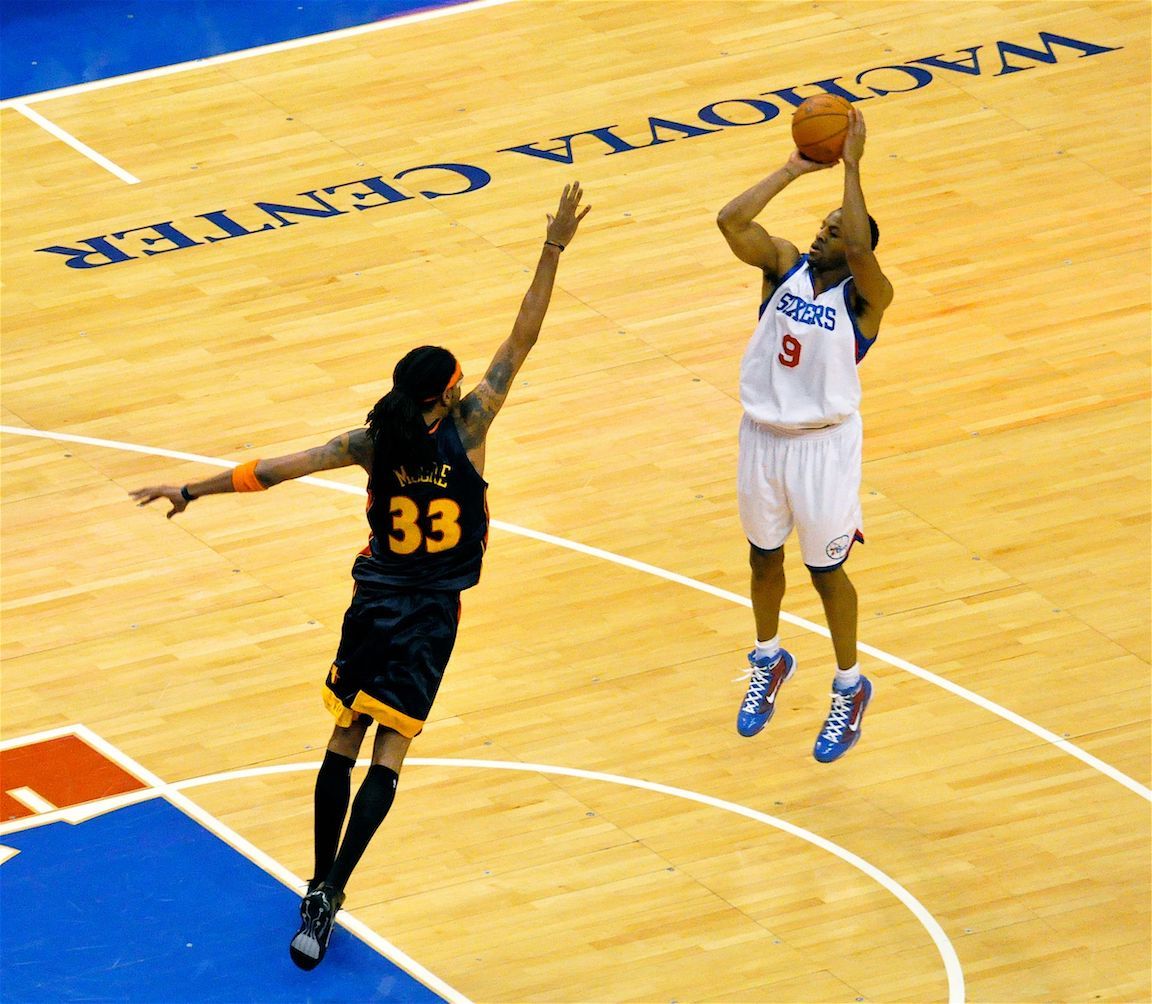
In the book you mention that reading has always been very important to you. Are there any books, Mr. Iguodala, you would recommend?
AI: A lot of people ask me about financial literacy and I tell them to read Snowball: Warren Buffett and the Business of Life by Alice Schroeder. Sometimes you’re destined to be something because of the way you grew up. People want to know how I got good at basketball and I reply: how did Warren Buffet get rich? There’s no secret. It’s ingrained in me. Warren Buffett had a passion for collecting things, bottle caps, stamps, whatever. He also had an uncle who traded stock and a business at the age of 11. People forget he worked really hard. I’ve learned that Malcolm Gladwell’s 10,000-hour rule is a little skewed. Sometimes it takes 20,000 hours, but the important thing is that you need to immerse yourself in something continually. If you have respect for it, a reverence for it – if you love it and get joy from it – that’s when you start to have success. You make your own luck with the work you put in. There’s no such thing as being lucky. I sometimes feel lucky too, but then I remember I worked to put myself in the position to get lucky.
Another great book in terms of the energy you put forth in life is Seat of the Soul by Gary Zukov. My favorite chapter is “Reverence,” where he describes how we should respect others, how we should respect life. There needs to be a reverence of the world: we need to ask, “how can I change it to be better?” There are people doing this. Like Ethan Brown from Beyond Meat. He started that company because he was passionate about energy and the climate crisis. The biggest cause of global warming is meat, cows, and they take up the most real estate in the world too. Brown’s trying to change things and Beyond Meat is now one of the most successful IPOs in recent years.
Any predictions for the upcoming NBA season, Mr. Wallace?
CW: I don’t know if I’m qualified.
That never seems to stop anyone else. [Laughter]
CW: In terms of story and flow of the game, I think the NBA is at a transition point. This season will feel like everything is up in the air for the casual viewer. The change began with the Finals last year and with the dominant narrative of the Warriors being unbeatable being overturned. When reality happened, the unthinkable became real.
Also, everything is re-shuffling this off-season. The complaints about “super teams” are dying out. Guys are going and playing with the people they want to play with, and that’s how it should be. All the free agent signings and trades have been ridiculous. It will change the balance of power. Not only in terms of teams but also in terms of how the players are regarded. The old narrative of we as fans owning the players or the team owning the players is changing – they’re not even called “owners” anymore, they’re now officially known as governors. Now it’s going to be more about individuals. The players are also helping to change that off the court with projects like The Players’ Tribune or LeBron’s Barbershop. They’re working to be seen as people, as human beings.
My only other prediction is that the Warriors will do better than everyone thinks. They’re going to put together something quite interesting. I also think Memphis is going to be interesting and I’m not saying that because Andre is here. There are going to be some teams coming out of the West that a lot of people don’t expect.
A moment of silence settled in. I wanted to ask more questions about the trade, or at least express my sadness as a Golden State Warriors fan that Iguodala would no longer be playing for the Dubs. But instead, after maybe an eternity had passed, I simply thanked him and Wallace for the conversation.
The Sixth Man: A Memoir is published by Blue Rider Press.
Credits
- Text: Shane Anderson
Related Content
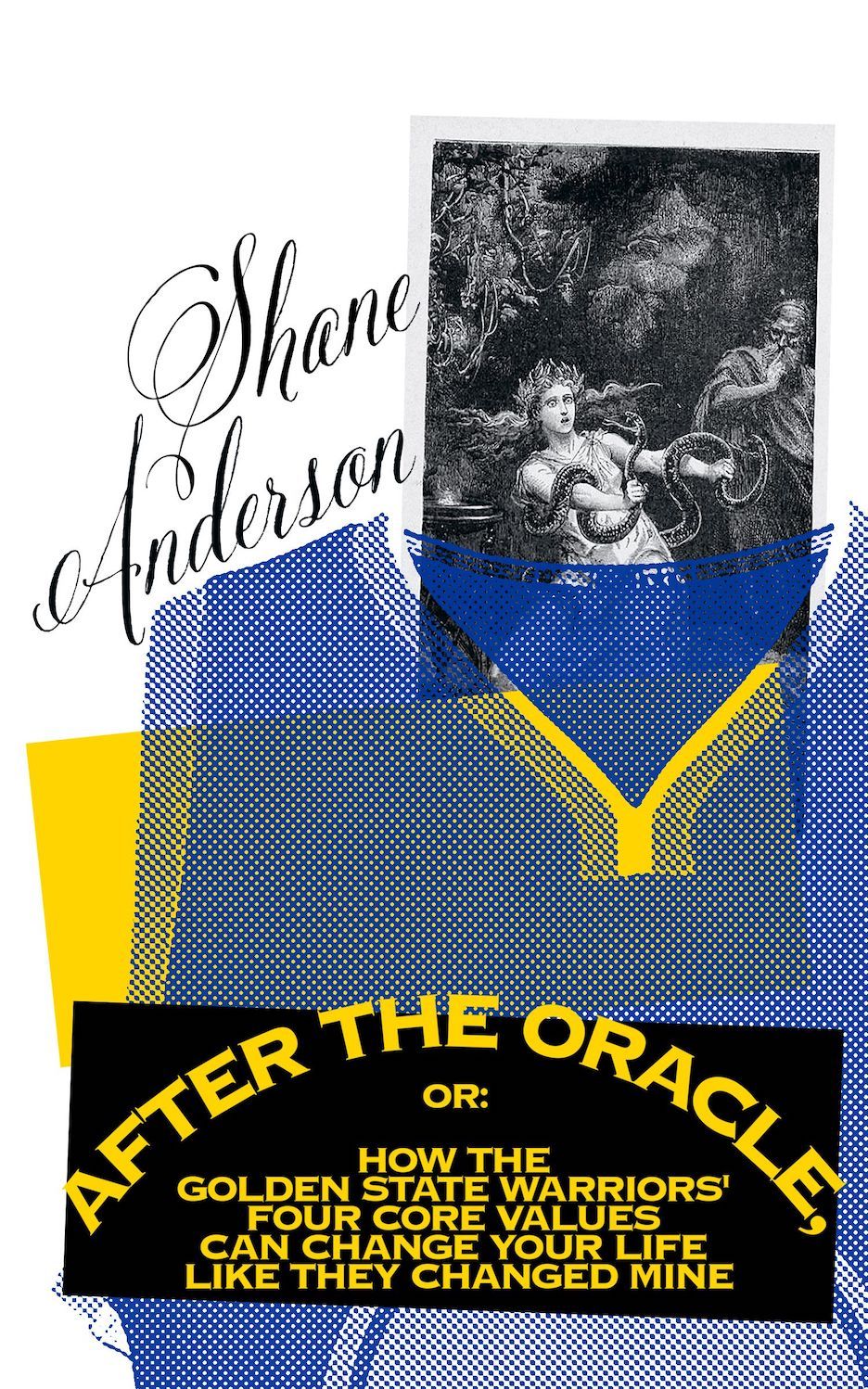
After the Oracle
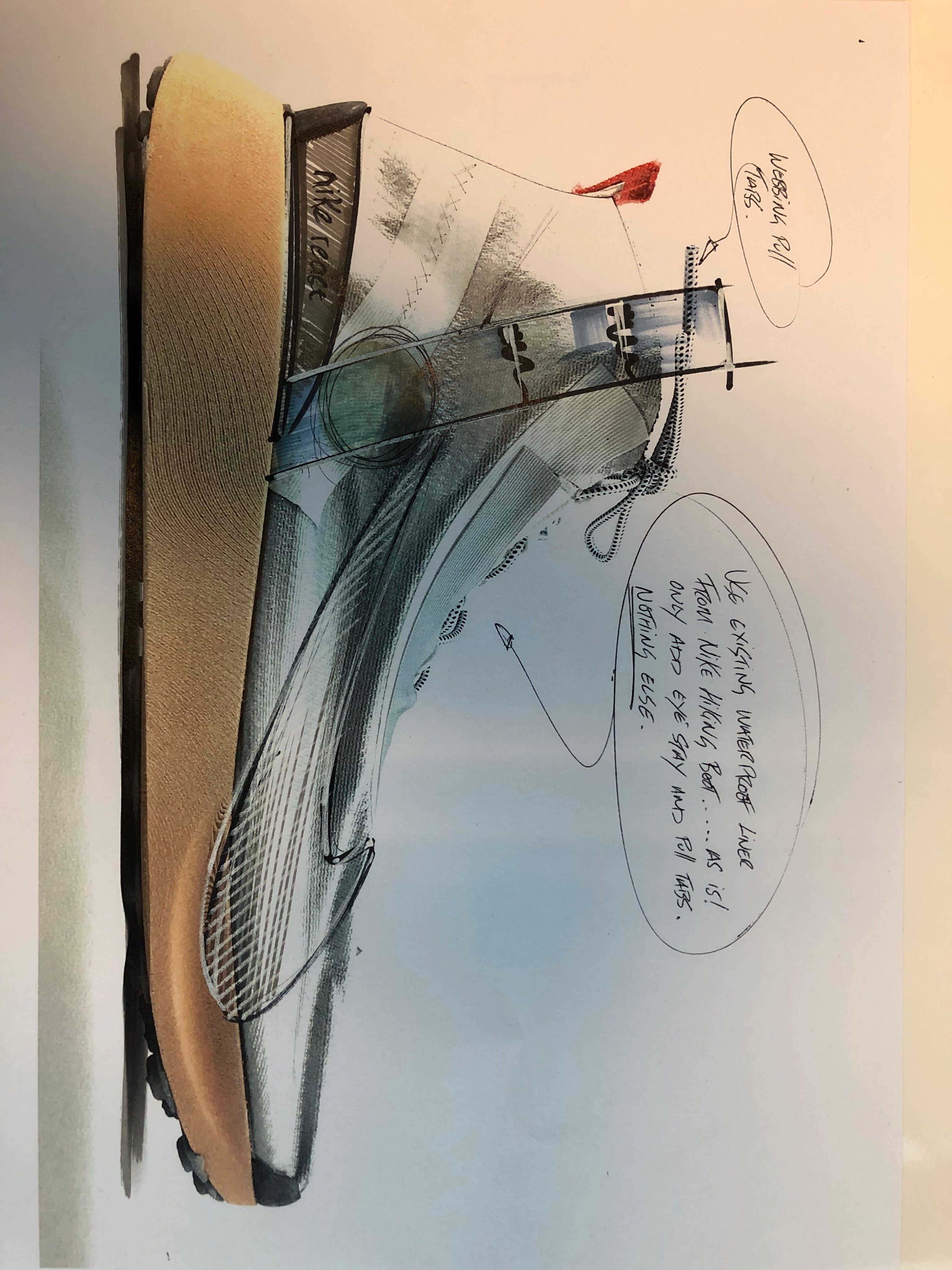
NIKE Survivalism: What is ISPA?
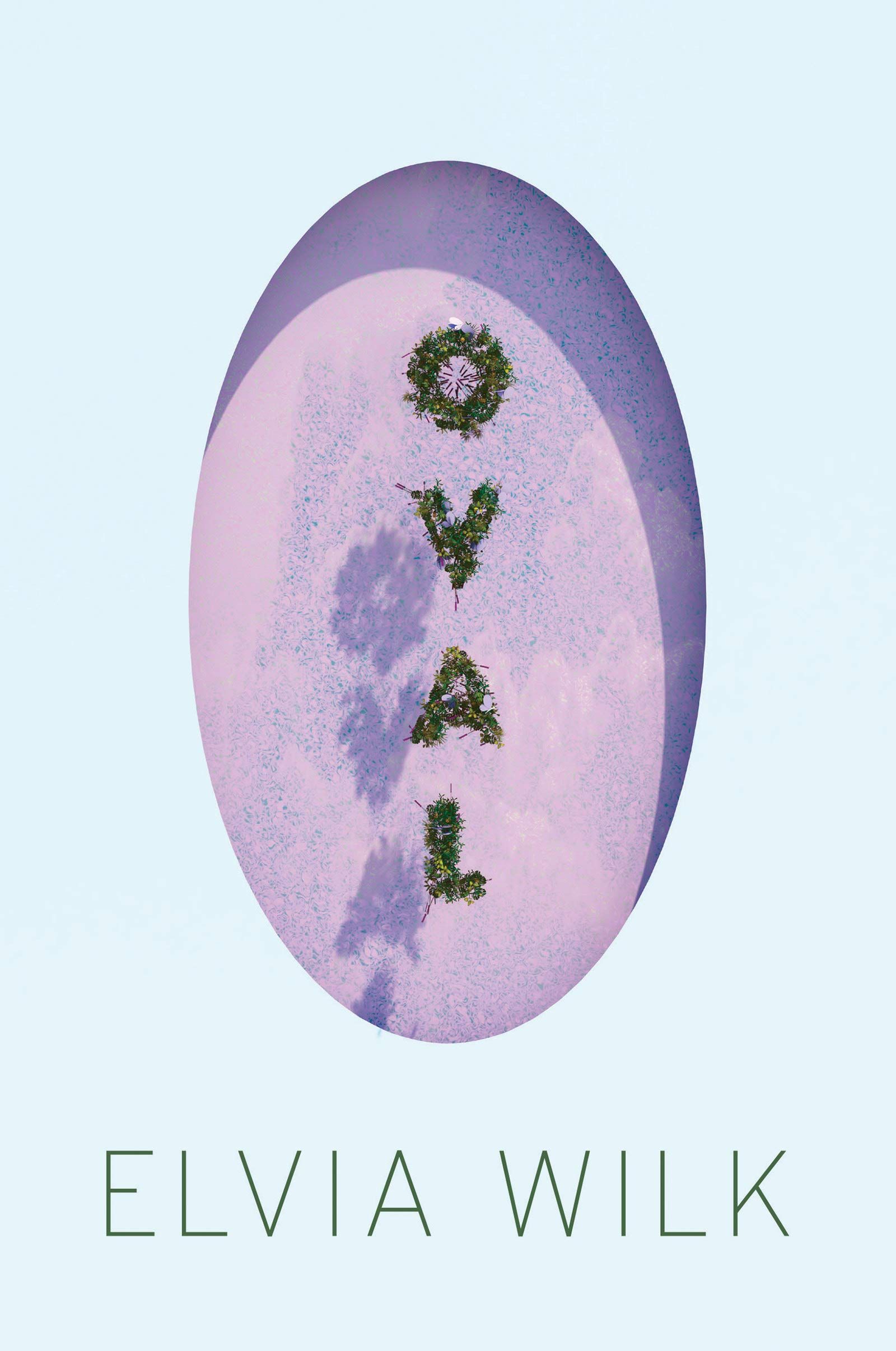
“We trust our friends. And we trust ourselves.” ELVIA WILK on Berlin’s Cultural Class, Grief, and her Debut Novel
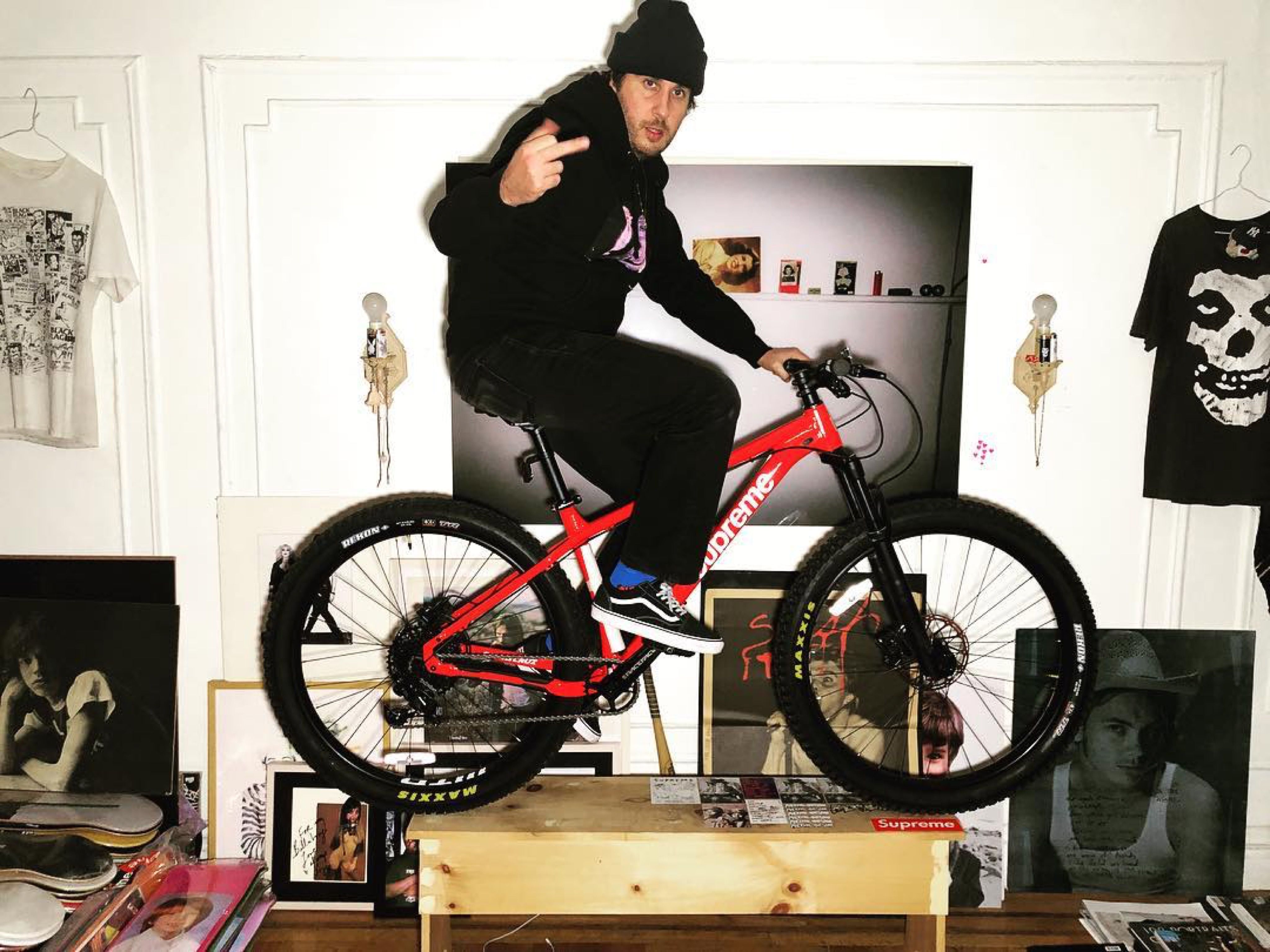
“Basically, I’ve Lived It, Know What I Mean?”: William Strobeck’s SUPREME

OG? OK! Onitsuka Tiger Unveils 70th Anniversary OK Basketball Shoes in Berlin